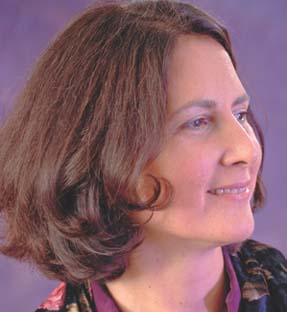 |
 |
| current issue |  |
past issues |  |
send a letter/news |  |
address update |  |
advertise |  |
about us |  |
alumni home |
Features
Repeat After MePage 3 of 5
DO BABIES HAVE MEMORIES?
Psychologists have long puzzled over how—or if—babies have memories. The average person's earliest memory usually goes back no farther than age 3 and a half, and, in some countries, such as Korea, China and India, age 4 or 5. Freudians tended to attribute infant amnesia to sexual repression, a concept not widely held today. "We now know that an infant's mind is not, as psychologist William James thought, 'a blooming, buzzing confusion,'" says Leichtman.
Instead, experiments in the 1990s confirmed that babies retain information from events long before they can talk. In one study with 14- to 16-month-old babies, an examiner picked up a toy box and touched it to her forehead while the babies watched. Four months later, children who had witnessed the behavior were more likely to repeat it when presented with the box than were children in a control group. Leichtman notes that this evidence of infants having memories of events supports the need for establishing routines with babies. "We know that the underpinnings of a child's attachment system has to do with established routines," she says.
But why can't even young children recall events from their infancy? Pillemer suggests that the way we construct memories changes over time, and young memories may be laid down in a nonverbal format. "What cues are there to pull a memory from early childhood if you don't conceive of it now as you did then?"
After language begins to develop between age 2 and 3, so does narrative memory. Children begin to learn what is worth remembering and what isn't. Pillemer and others hypothesize that the way adults, especially parents, talk with young children about their experiences establishes lifelong patterns of memory that play a role in learning, personality and life choices.
 "Realizing that children's memories are highly suggestible has dramatically changed the way their testimony is collected and viewed in legal cases."
"Realizing that children's memories are highly suggestible has dramatically changed the way their testimony is collected and viewed in legal cases."—Michelle Leichtman, associate professor of psychology |
"Parents differ in the way they talk with their children," says Pillemer. Some tend toward more elaborative talk—encouraging the sharing of specific details, asking more open-ended questions. Others are non-elaborative, asking more fact-based, often yes-or-no questions. "The elaborative style gives the message that details are good, useful, worth remembering and worth sharing; that people want to hear them and they are part of what you are. Non-elaborative conversation says that memory is very functional; it lets me know you were safe and followed the rules."
In a study by Leichtman and Pillemer, parents of preschoolers were asked to tape record a conversation they had with their child about a surprise classroom visit that day by the children's teacher and her new baby. A researcher asked the children several weeks later what they recalled of the visit. When compared, the taped conversations showed that children whose parents had elaborative conversation styles remembered the most details several weeks later, especially the details they had discussed with their parent.
These differences in autobiographical-event memories are greatly influenced by culture. "Chinese babies are not born with less narrative proclivities than European babies," says Leichtman. "But the environment helps prune what happens at the level of the brain, and by age 4, children have already learned a narrative style that will dictate what they retain about events in their lives."
For instance, she says, if you ask a Chinese child to describe what happened at bedtime the previous night, you're likely to hear a list of tasks: "I washed my face, brushed my teeth, heard a story and went to bed." The same question posed to an American child might elicit a long narrative about a single thing that happened around bedtime. The researchers speculate this might have to do with the difference between a culture that emphasizes collectivity versus one that prizes individuality.
Outside influences can also create memories of things that may never have happened, a finding that has had wide implications. Several studies in the 1990s indicated how open children are to false memories. One study, coauthored by Leichtman, presented preschoolers with several events the children had never experienced, such as getting a finger caught in a mousetrap. With repeated questioning, 58 percent of the children volunteered personal memories of at least one of the events, and a quarter recalled the majority of events happening to them. The legal implications of these studies were immense, since in a number of alleged abuse cases in the 1980s and early 1990s, testimony by children sent day care workers and parents to jail. "Realizing that children's memories are highly suggestible has dramatically changed the way their testimony is collected and viewed in legal cases," says Leichtman.
Page: < Prev 1 2 3 4 5 Next >Easy to print version

